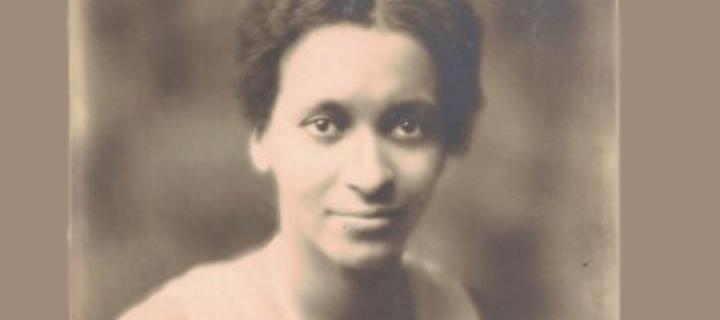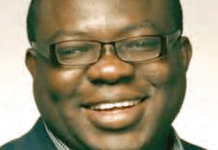The early history of the medical profession in Nigeria and, indeed, West Africa, is replete with exploits of women who have contributed in various ways to the development and advancement of healthcare. However, little is remembered of these women whose audacity to challenge the discriminatory norms that time fuelled their determination to excel as their male counterparts.
One of those female pacesetters was Agnes Yewande Savage. She was the first Nigerian and West African woman to train, qualify and receive a university degree in orthodox medicine, graduating with first class honours from the University of Edinburgh in 1929, at the age of 23.
A woman of excellence, Savage was one of the brightest minds in the medical school during her years at Edinburgh, where she outperformed her male counterparts. In her fourth year in medical school, she obtained first class honours in all subjects, won a prize in Diseases of the Skin and a medal in Forensic Medicine – becoming the first woman in the history of Edinburgh to do so. She was awarded the Dorothy Gilfillan Memorial Prize as the best woman graduate in 1929.
Savage was a co-founder of Korle-Bu Nurses Training College in Ghana, where a ward was named in her honour. As Ghana’s foremost nursing college, Savage played an active role in the Korle-Bu nurses’ early formation and training.
Education and background
Yewande Savage was born on 21 February 1906, in Edinburgh, Scotland, to the family of Richard Akinwande Savage Senior, a 1900 Edinburgh medical graduate of Sierra-Leone Creole and Egba-Nigerian descent; and Maggie S. Bowie, a working-class Scotswoman.
The Savage family had several medical doctors. Richard, her father was a prominent physician, journalist (publisher of the Nigerian Spectator) and politician in Lagos, Nigeria during the colonial era. He served as an officer in the Afro-West Indian Society, edited the Society’s 1899–1900 handbook and was subeditor of The Student. He was the last African to be appointed to the colonial medical service, as an assistant colonial surgeon, before the 1902 declaration by Joseph Chamberlain that in future the service would be restricted to Europeans. He worked for several years in Cape Coast in the Gold Coast (modern Ghana) as a government physician and as a private practitioner.
Yewande Savage’s brother, Richard Gabriel Akinwande Savage Jr, was also a doctor who graduated from Edinburgh in 1926 and received his commission as a 2nd Lieutenant on September 23, 1940, making him the first West African to be commissioned an officer in the British Army. In September 1941, He was promoted to the rank of Captain and later retired from the army as a Major. He served as a medical doctor in the Asian Theater of World War 2, specifically in Burma, where he tended to wounded soldiers from Britain’s contingent. Among the soldiers that Richard Savage Jr treated in Burma was Isaac Fadoyebo, a wounded Nigerian soldier in the Royal West African Frontier Force, who recounted the quality of care that Savage provided to him and other West African soldiers.
Yewande Savage grew up in Scotland where she had her entire education. She passed exams to the Royal College of Music in 1919 and was given a scholarship to study at George Watson’s Ladies College. There, she received an award for General Proficiency in Class Work and passed the Scottish Higher Education Leaving Certificate. She was admitted to the University of Edinburgh to study Medicine, and excelled in her studies. She graduated with first class honours from the University of Edinburgh in 1929.

Savage, like many African women who practised in a male-dominated African civil service faced gender and racial institutional barriers in her career. After graduation, she joined the colonial service in the Gold Coast (present-day Ghana) as a Junior Medical Officer. Though better qualified than most of her male counterparts, she received fewer benefits.
In 1931, she was recruited by the headmaster of Achimota College, Alec Garden Fraser. At the urging of Alec Garden Fraser, the colonial government gave her a better contract. She was with Achimota for four years as a medical officer and a teacher.
Savage played a leading role in women emancipation and empowerment in West Africa. Her achievement in the medical profession encouraged many girls to be doctors like her. While at Achimota College, she came in contact with Susan de Graft-Johnson – who would later become Ghana’s first female medical doctor.
Graft-Johnson regularly worked with Savage at the sick bay and became her mentee. She later went on to also study Medicine at the University of Edinburgh. Another West African female medical pioneer who was also mentored by Savage and studied at both Achimota and Edinburgh was Matilda J. Clerk, who became the first Ghanaian woman to win a university merit scholarship, the second female doctor in Ghana and the fourth West African woman to train as a physician.
Savage retired relatively early due to “physical and psychological exhaustion” in 1947, after years of hard work and dedication to healthcare service education in Ghana. She spent the remainder of her life in Scotland raising her niece and nephew. She died of a stroke in 1964.










